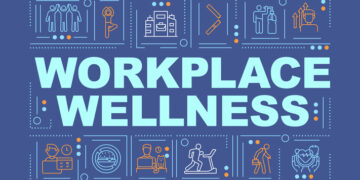Online and in your social media feed, you’re dealt with a lot of information, and not all sources have your best interests in mind. Here’s how to tell the good from the bad – and the downright ugly in spotting fake health news.
It never fails: one day you hear that a glass of wine a day is good for you, and the next, you read that you should avoid all types of alcohol. Is high-intensity interval training the best way to keep your ticker in fine form, or does the latest study on endurance cardio have merit? If you are to believe everything you see shared on social media accounts, or in the headlines on your newsfeed, you’d never come to any solid conclusion. So where do you start?
Nina Shapiro, MD, author of Hype: A Doctor’s Guide to Medical Myths, Exaggerated Claims, and Bad Advice, has years of experience fielding health questions from patients, family and friends, and as such is an expert on dismantling fact from fiction in online claims. She understands firsthand how difficult it is to counteract the spread of fake news, especially online.
“There is virtually no boundary when it comes to sharing misinformation on social media platforms,” she explains. “Sadly, those with large audiences have a better likelihood of spreading such mistruths, which then get spread even further.” And it’s not just Facebook, Twitter and the like that are to blame. The behemoth known as Google plays a huge role as well.
Shapiro breaks down the top things to look for when considering whether health and fitness information you’ve found online is sound – or if the poster has ulterior motives

Check the Ad box
While Shapiro admits that, with the right search terms and a critical eye, Google can be a wealth of information, the websites you deal with often pay for their position in your results. “If you see a little box next to a googled site that says ‘Ad,’ it means it’s an advertisement,” she notes. “It doesn’t mean that the information is wrong, but it does mean that the site is paying, either upfront or per click, to be more visible.” Keep that in mind as you click through. Are they selling you a product? Is the page sponsored by an organization? All these little details will help you determine the source’s endgame.

Approach online groups with caution
“Like it or not, online communities are support groups that are much more readily accessible than many physicians, and even more accessible than support groups within healthcare facilities,” says Shapiro. “The ease of connection online, any time of day or night, also makes this quite appealing.”
Of course, a lot of good can come from connecting with others who have the same concerns as you. However, these pages can be breeding grounds for misinformation. As Shapiro explains, “The information shared may not necessarily be vetted by an outside unbiased source, so one needs to be very careful when hearing any recommendations. In addition, the privacy aspect of one’s own health information is lost altogether in such communities.” That means you need to be careful about what you share about yourself, especially details you may not want to be exposed to other communities or individuals.

Watch for panaceas in Fake Health News
As the saying goes, if it sounds too good to be true, it probably is, whether it’s advice based on a new study or a product that others are raving about. “Nothing is a miracle when it comes to one’s health,” cautions Shapiro. “If someone is claiming that a medication, diet, or exercise is miraculous, beware of hyperbole. And if a person or organization is selling a product they claim will make miracles, beware that as well.”

Find inspiration, not solutions, in others’ stories
Following accounts that chronicle a person’s real-time journey through a health issue or in reaching their fitness goals can be a great boost of motivation. But not everyone’s process or outcome will be the same, and there are some who may embellish details for the sake of likes, views and clicks.
“As with most social media statements, there is no way to truly know if the person is being absolutely honest and accurate,” says Shapiro. “That said, we hope that the majority of people want to share good information.” The best plan of attack? Approach personal stories with the same critical eye that you wou

Make sure you pay it forward to future generations
Even though Gen Z has grown up with the internet, Shapiro notes that they can be just as likely to fall trapped by bad information. “Younger people/millennials do have a better handle on the internet in many ways,” she admits. “For example, they can see subtle issues such as photoshop and filters more clearly than many older people.”
Still, it’s important to have open conversations with your children about their health and what they read and share online. Shapiro has written a book, The Ultimate Kids’ Guide to Being Super Healthy, to help parents and caregivers navigate this touchy subject. Plus, she’s planning on releasing a book in the near future for younger kids that will cut through popular falsehoods and misunderstandings – before they fall trap to them online.
















